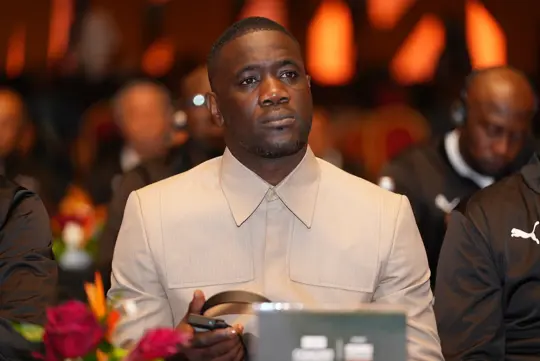Emerse Faé spoke exclusively with Cafonline.com about his journey as the head coach of the Ivorian national team, reflecting on the victory at the AFCON 2023 and sharing his ambitions for the upcoming TotalEnergies Africa Cup of Nations.
For Emerse Faé, the date of February 11, 2024, will forever mark a turning point. On that day, the former midfielder captured the hearts of an entire nation with his tactical approach that led Cote d’Ivoire to victory on home soil.
Having been crowned African champions, Faé is now focused on ensuring a bright future for the team. During the recent CAF Coaches Technical Symposium, he granted an exclusive interview to Cafonline.com.
Cafonline.com: What went through your mind when you took charge of Cote d’Ivoire during the TotalEnergies CAF Africa Cup of Nations?
Emerse Faé: Initially, I didn’t think twice. I accepted immediately because it’s my country, and I love my country. I’m not afraid of challenges or objectives, nor of taking risks. Knowing the group for a year and a half, I was confident in what we could bring to change the team’s mindset.
Thanks to God, we found success. As a young coach, I was previously unknown in this role. Had I failed at the AFCON, it would have been challenging for me to secure another opportunity in Côte d’Ivoire and Africa.
How has winning the Africa Cup of Nations changed your daily life?
It’s quite difficult to go out in Abidjan or even anywhere in Africa. During my last visit to Cameroon, I noticed many Ivorian supporters at the hotel wanting to take photos and engage with me. This shows a significant change.
My fame has significantly increased. However, I remain approachable and enjoy interaction. Sometimes, it’s tough to turn down a request for a photo or a football discussion. While things have changed, engaging with people remains a crucial part of my work. I try to take the positives from this situation, as it could be much more complex otherwise.
I’m delighted to share these moments with Ivoirians and Africans who appreciate my work.
What adjustments were made within the team to achieve these positive results?
We transformed the team’s mindset by strengthening the fighting spirit. This team needed confidence; it had immense potential but lacked assurance.
It required a big brother figure to provide encouragement during tough moments and to point out what wasn’t working.
God gave us a second chance, and it was unthinkable to let it slip away. Thus, we changed our mentality, became united, and learned to fight. Winning a cup at home is a real challenge, with Egypt being the last team to achieve this in 2006.
We knew we needed fighters to win this competition. We managed to instill a warrior spirit in our players, and we have resources available to us.
Why is it important for young African coaches to have the chance to lead their national teams?
It’s a great honour, especially since young African coaches in Europe face significant challenges. Leading a national team is a heavy responsibility. Too often, we are relegated to assistant roles or youth teams, but when senior positions arise, it becomes complicated.
Having the opportunity to coach Côte d’Ivoire is a point of pride for me, especially as my assistant is also a young coach with limited experience before this tournament. Yet, we were given our chance, and we seized it. I’m happy to show young African coaches and players that when you have a dream, you must believe in it from start to finish.
Regardless of the obstacles, never give up on your dreams.
How would you describe your collaboration with your assistant, Guy Demel? Was there a clear division of tasks between you two?
We are very close. We played together in the national team and often shared a room. He even introduced me to my wife, as they grew up together. Now, we can understand each other without speaking.
We analyze situations simultaneously without discussion. If one of us feels tired or unwell, the other steps in. He does a lot for me by trying to lighten my workload so that I can fully focus on the field.
I enjoy working alongside my big brother. Although it might be expected for him to take the lead due to his age, the reality is different. He has never complained about this role reversal and consistently approaches his responsibilities with the utmost seriousness, allowing me to remain calm and composed in my decisions.
Emerse Faé: “My goal is to create the most talented generation in the country’s history”
Published: Thursday, 03 October 2024
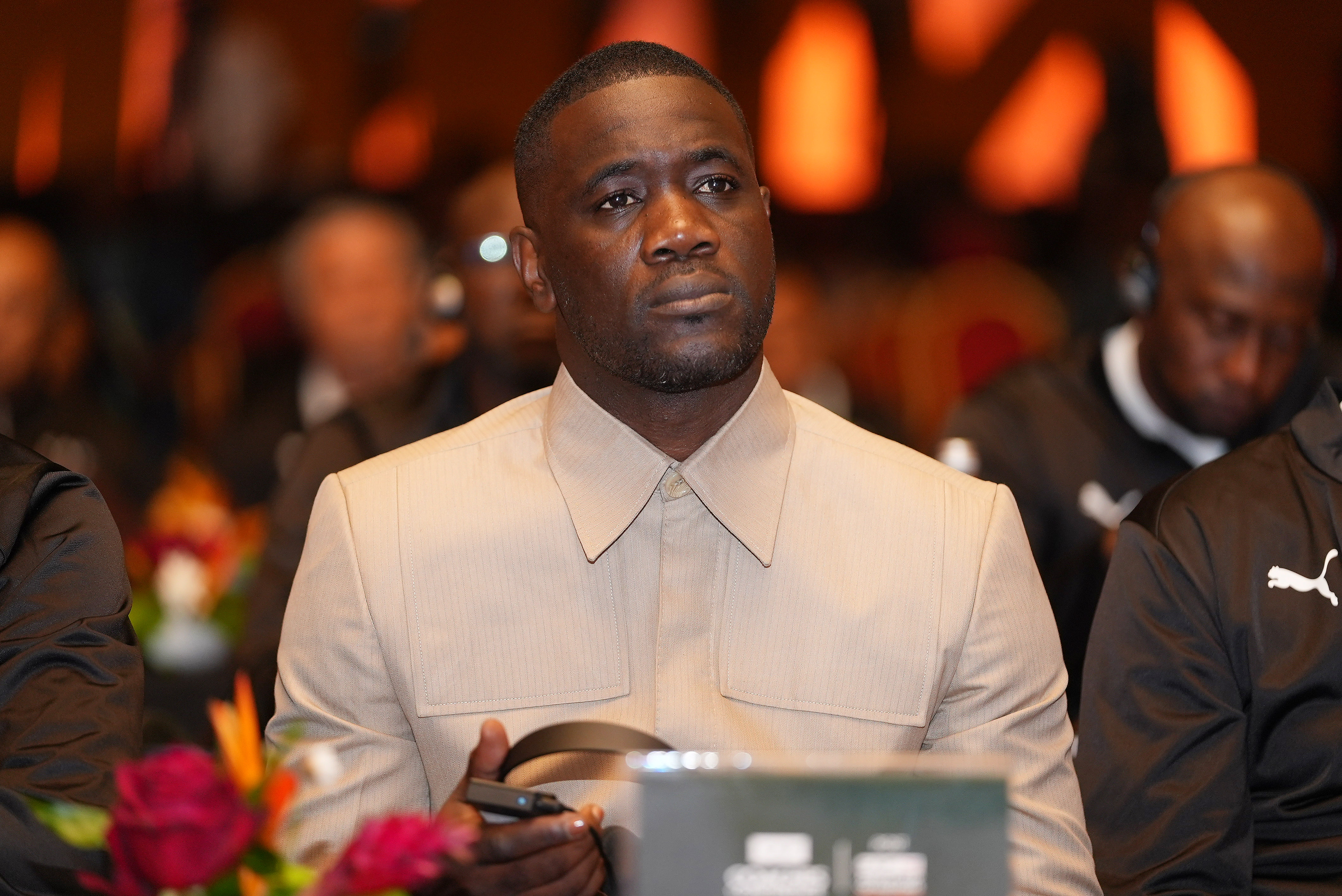
Emerse Faé spoke exclusively with Cafonline.com about his journey as the head coach of the Ivorian national team, reflecting on the victory at the AFCON 2023 and sharing his ambitions for the upcoming TotalEnergies Africa Cup of Nations.
For Emerse Faé, the date of February 11, 2024, will forever mark a turning point. On that day, the former midfielder captured the hearts of an entire nation with his tactical approach that led Cote d’Ivoire to victory on home soil.
Having been crowned African champions, Faé is now focused on ensuring a bright future for the team. During the recent CAF Coaches Technical Symposium, he granted an exclusive interview to Cafonline.com.
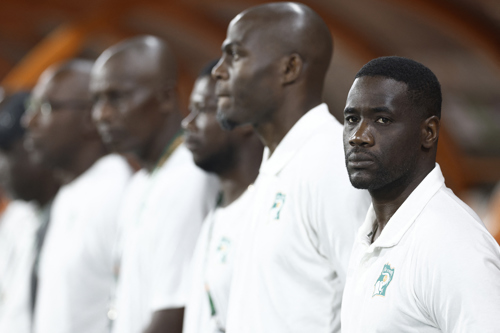
Cafonline.com: What went through your mind when you took charge of Cote d’Ivoire during the TotalEnergies CAF Africa Cup of Nations?
Emerse Faé: Initially, I didn’t think twice. I accepted immediately because it’s my country, and I love my country. I’m not afraid of challenges or objectives, nor of taking risks. Knowing the group for a year and a half, I was confident in what we could bring to change the team’s mindset.
Thanks to God, we found success. As a young coach, I was previously unknown in this role. Had I failed at the AFCON, it would have been challenging for me to secure another opportunity in Côte d’Ivoire and Africa.
How has winning the Africa Cup of Nations changed your daily life?
It’s quite difficult to go out in Abidjan or even anywhere in Africa. During my last visit to Cameroon, I noticed many Ivorian supporters at the hotel wanting to take photos and engage with me. This shows a significant change.
My fame has significantly increased. However, I remain approachable and enjoy interaction. Sometimes, it’s tough to turn down a request for a photo or a football discussion. While things have changed, engaging with people remains a crucial part of my work. I try to take the positives from this situation, as it could be much more complex otherwise.
I’m delighted to share these moments with Ivoirians and Africans who appreciate my work.
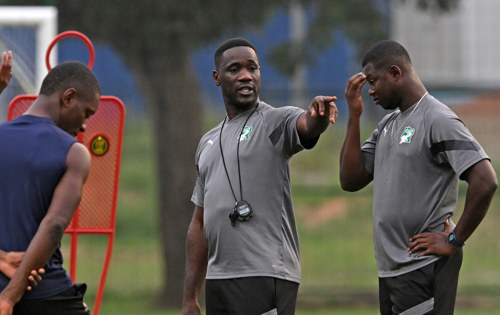
What adjustments were made within the team to achieve these positive results?
We transformed the team’s mindset by strengthening the fighting spirit. This team needed confidence; it had immense potential but lacked assurance.
It required a big brother figure to provide encouragement during tough moments and to point out what wasn’t working.
God gave us a second chance, and it was unthinkable to let it slip away. Thus, we changed our mentality, became united, and learned to fight. Winning a cup at home is a real challenge, with Egypt being the last team to achieve this in 2006.
We knew we needed fighters to win this competition. We managed to instill a warrior spirit in our players, and we have resources available to us.
Why is it important for young African coaches to have the chance to lead their national teams?
It’s a great honour, especially since young African coaches in Europe face significant challenges. Leading a national team is a heavy responsibility. Too often, we are relegated to assistant roles or youth teams, but when senior positions arise, it becomes complicated.
Having the opportunity to coach Côte d’Ivoire is a point of pride for me, especially as my assistant is also a young coach with limited experience before this tournament. Yet, we were given our chance, and we seized it. I’m happy to show young African coaches and players that when you have a dream, you must believe in it from start to finish.
Regardless of the obstacles, never give up on your dreams.
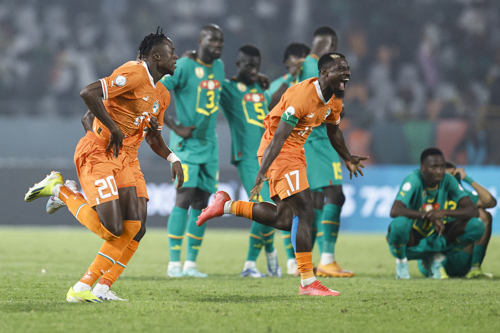
How would you describe your collaboration with your assistant, Guy Demel? Was there a clear division of tasks between you two?
We are very close. We played together in the national team and often shared a room. He even introduced me to my wife, as they grew up together. Now, we can understand each other without speaking.
We analyze situations simultaneously without discussion. If one of us feels tired or unwell, the other steps in. He does a lot for me by trying to lighten my workload so that I can fully focus on the field.
I enjoy working alongside my big brother. Although it might be expected for him to take the lead due to his age, the reality is different. He has never complained about this role reversal and consistently approaches his responsibilities with the utmost seriousness, allowing me to remain calm and composed in my decisions.
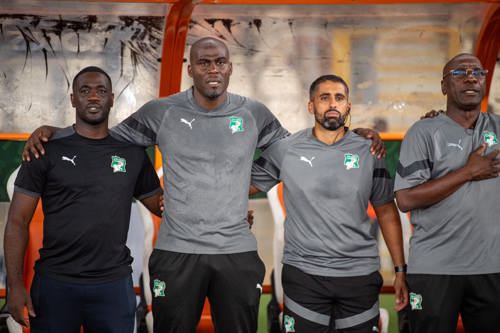
As a local coach, do you receive the respect you deserve?
Yes! This is a first in sports: a coach takes charge of a team in full competition and leads them to victory. This coach took over a team at risk of elimination after a devastating 4-0 loss and managed to eliminate Senegal.
After an impressive tournament performance, the defending champions also triumphed against Nigeria in the final, the team that had previously defeated them in the group stage. I notice that my fellow coaches show me considerable respect, often congratulating me during their visits.
When they have the chance, they also promote me. It makes me happy to see the solidarity among African coaches, and I sincerely hope that my journey can inspire other local coaches to achieve their ambitions.
What are your current aspirations? What objectives do you wish to achieve?
I have big ambitions. First, it is crucial to qualify for the next AFCON and then win the tournament. Many believe our previous victory was merely due to luck, as it took just four wins to be crowned champions. Additionally, winning on home soil made it easier. Therefore, we are keen to qualify for the next edition and win it to demonstrate that our success was not merely a fluke.
The World Cup is also a goal, aiming for Côte d’Ivoire to regain its place on the international stage. Since 2014, our country has been absent from this event. We aspire to qualify and represent Africa, inspired by Morocco’s success in 2022, which greatly motivates us.
I want to share my ultimate goal, although I prefer to maintain some discretion. I have had the honor of being part of one of the most remarkable generations of the Ivorian national team. Although we did not win titles, our team was always regarded as one of the most talented. My dream now is to create an even more gifted generation than ours.
I am convinced that our team is full of exceptional talent. My goal is to form a formidable group that instills fear, as we did in 2006, and that brings titles back to Côte d’Ivoire. I want to be remembered as the young coach who surprised everyone by turning the situation around, revitalizing a country, and bringing joy back to its people. We will work tirelessly to ensure the sustainability of this legacy for Côte d’Ivoire.
How often are you recognized during your travels? Do you require protection or a bodyguard?
(Laughs.) In fact, there’s always a possibility of volunteers being present. Currently, being in my country, I don’t need security. I hope this continues because I enjoy spending time with my people. It’s something I truly love. And it’s not done with a bad mindset, so for now, I don’t feel the need for security.
I hope this lasts, and that people continue to treat me with respect and ask for photos, while being courteous, especially in the presence of my wife and daughters. This is also very important for them. At the moment, I don’t feel the need or desire to surround myself with bodyguards.
A word on your start to the campaign in the 2025 Africa Cup of Nations qualifiers?
We’ve had a good start because the objective was to win both matches in the first two rounds. Before we left, I explained to the players that our aim in October was to qualify for AFCON, so that we could eventually test other players in November and rotate the team. However, the goal for the next stage

